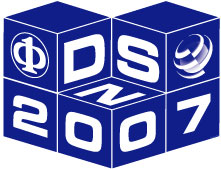 |
DSN 2007 Workshop on Dependable and Secure NanocomputingIn
conjunction with the 37th Annual IEEE/IFIP International Conference
on Dependable Systems and Networks
|
|
When: Thursday June 28, 2007 Where: Edinburgh International Conference Centre, UK |
||
Motivation and ThemeThe evolution of nanocomputing technologies raises serious challenges both from the point of view of Dependability and Security. One classical issue to cope with is related to mitigating the impact of disturbances (e.g., the so called “soft errors”) that are increasingly affecting the operation of computing systems. A wider issue is the impact of scaling, the inability to tightly control the manufacturing process to a degree possible before, as well as the impact of power, current and voltage fluctuations. These effects are expected to lead to not only a larger level of transients, but also a larger defect rate. Hence, the increasingly need to rely on fault tolerance techniques. Nevertheless, issues at stake go far beyond disturbances in operation. It is anticipated that general-purpose large-scale processor architectures will also suffer from low-fabrication yield resulting in a growing number of defective components at delivery. Indeed, the increased circuit sensitivity to small spot defects, the increasing sensitivity of long buses (Network on Chips) to cross talk, and in a larger extent the dramatic increase of statistical variation of process parameters in upcoming nanometric processing nodes become the nightmare for yield and reliability engineers. Last but not least, one has to consider the risks faced by current integrated circuits, especially cryptographic devices, when exposed to malicious threats (including side channel attacks in smart devices and malevolent “fault injections” exploiting related vulnerabilities). |
||
Objectives and AimsThe Workshop is aimed at characterizing these impairments and threats as well as distinguishing possible alternative design approaches and operation control paradigms that have to be enforced and/or favored in order to keep achieving dependable and secure computing. Three main goals were identified for the Workshop:
|
||
Participation,
Submission and Selection Process
|
||
|
New Submission
deadline: March 16, 2007 Author
notification:
April 13, 2007 Camera
ready copy :
May 4, 2007
|
||
Workshop Organizers
|
||
Program Committee
|
|
|
Further InformationFor more information about DSN-2007 and the venue, please visit the conference web site at: http://2007.dsn.org.For workshop information, please send an email to the workshop organizers. |
||